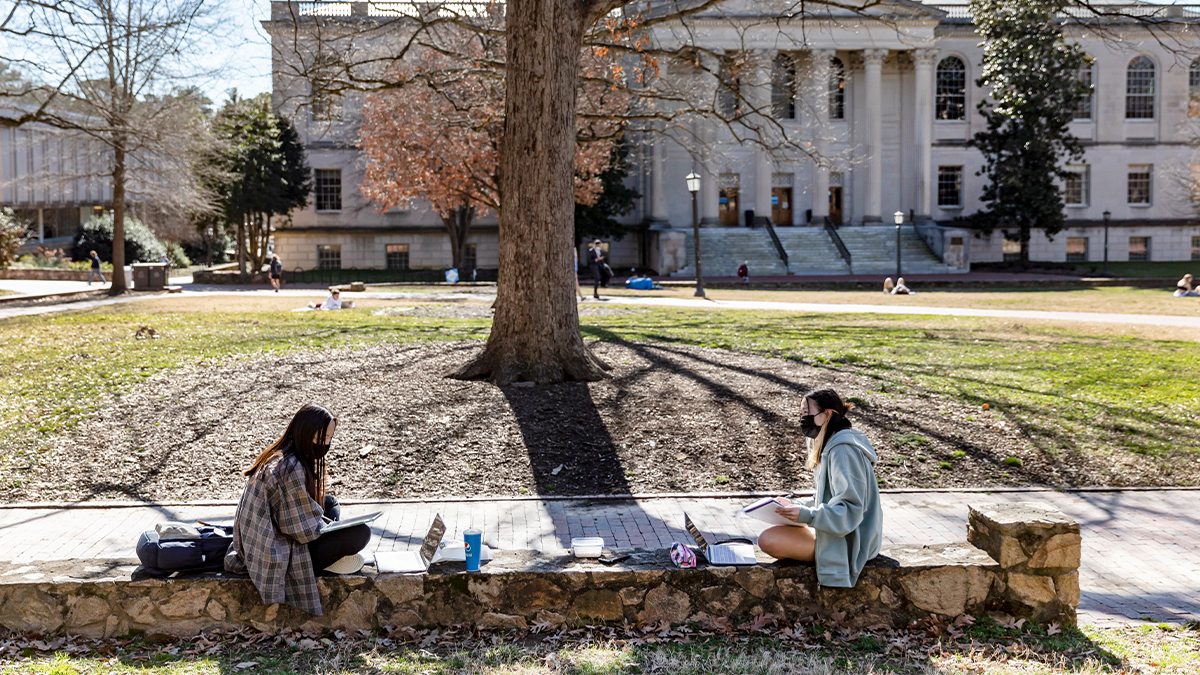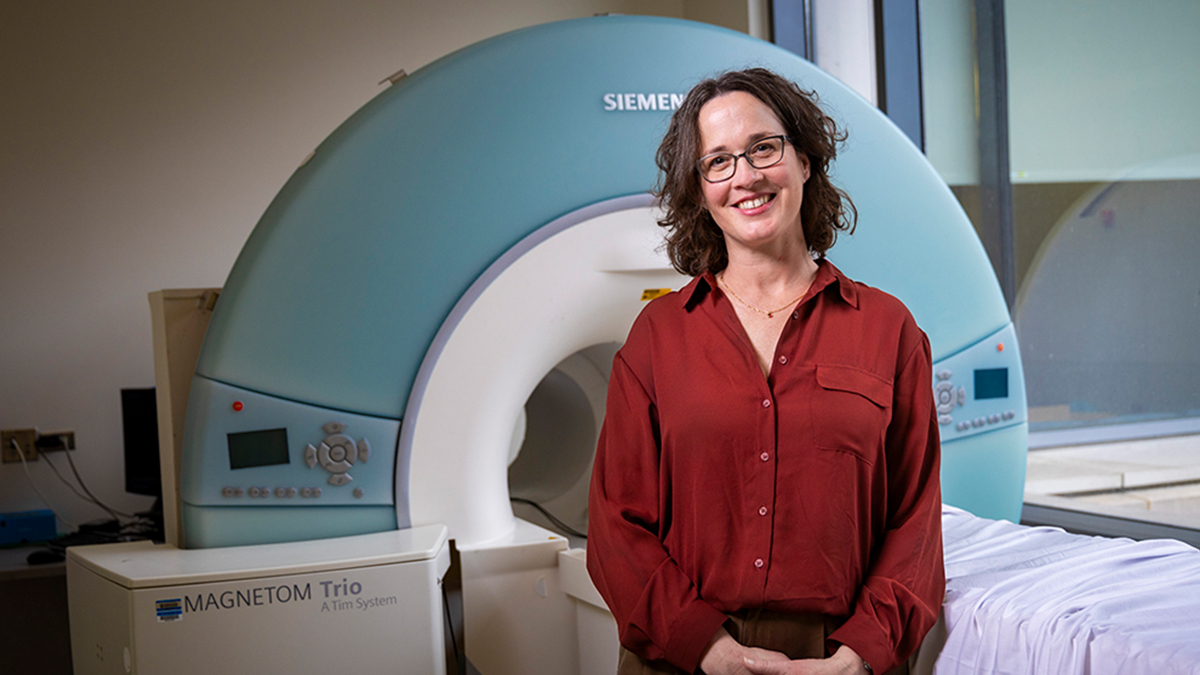Now more than ever
By adapting to the challenges of the pandemic, Carolina enrolled its largest undergraduate class ever in fall 2020 at a time when many other colleges saw their enrollments decline.

Community-building, adaptability, compassion and good intentions helped Carolina maintain its steady increase in enrollment even during the pandemic, said Rachelle Feldman, interim vice provost for enrollment and undergraduate admissions.
“The pandemic impacts each student in an individual and unique way, and we had to use our compassion as we thought about how to admit them,” she said. And after students were admitted, “we very quickly tried to create virtual experiences that mirrored what we couldn’t do in person anymore.”
In fall 2020, the University enrolled its biggest undergraduate class ever: 5,303 students (4,444 first year and 859 transfer students) from a record number of 47,607 applicants. Carolina’s current undergraduate headcount enrollment of 19,395 continues a steady upward trend that began in 2015.
Carolina’s numbers contrasted sharply with the national figures. In fall 2020, overall postsecondary enrollments in the United States declined 2.5%, with undergraduate enrollment decreasing 3.6% (or over 560,200 students) from 2019, according to the December report from the National Student Clearinghouse Research Center. The sharpest drop was in first-year enrollment, a dip of 13.1% (or over 327,500 students).
So how was Carolina able to buck the trend? By wanting to enroll more students, making allowances for an unusual high school senior year, rethinking in-person experiences and building a supportive community, Feldman said.
Intentionality
The first step in increasing enrollment is wanting to increase enrollment, and Chancellor Kevin M. Guskiewicz “wanted to make sure we welcomed enough people,” especially low-income and first-generation applicants, Feldman said. “That’s the core of who Carolina is.”
Due to the pandemic’s impact on the economy, fewer low-income and first-generation students applied, so that meant the Admissions staff had to work even harder on retention. Feldman recalled a conversation a compassionate staff member had with a Carolina Covenant scholar who was considering dropping out after three weeks of remote learning.
“The student was feeling extremely guilty about not working,” Feldman said. The staff member reminded the student about “the future she was building and how in the long-term an education could improve not just her life but also her family’s.” The student stayed enrolled and even persuaded others in similar situations to stick with it.
Allowances and processes
This pandemic class had a high school senior year like no other, and Admissions staff took that into consideration. They let applicants know they understood why they had pass/fail classes on their transcripts, why they didn’t have Advanced Placement exam scores and why they hadn’t participated in extracurricular activities. The UNC System waived the requirement for SAT and ACT exams. An optional essay question allowed applicants to share how COVID-19 had affected their lives.
Admissions re-examined its own process, quickly converting in-person experiences to virtual ones. They set up a special website for virtual information sessions, encouraged admitted students to set up phone or video appointments with counselors and set up Zoom meetings about financial aid that the whole family could attend. They will roll out a virtual tour of campus in a few weeks.
Community
With admitted students not able to meet up in person as easily because of the pandemic, the Admissions staff had to get more creative about bringing students together. “We usually have a series of dinners across the state and events, and we recreated some of those virtually,” Feldman said. They also set up breakout rooms within the Zoom information sessions so that admitted students could interact with each other and with current students.
They steered admitted students to Student Affairs programs like Carolina Away; 582 students in the 2020 entering class participated in this virtual program that allows students to take remote courses and explore new opportunities from anywhere in the world. They encouraged them to participate in online forums and game nights.
“It’s important to connect current students to incoming students, to develop that sense of belonging,” Feldman said. “We want them to be part of Carolina, not just taking classes here.”
When campus returns to its new normal, the Enrollment Division will probably keep some of its pandemic adaptations, like financial aid meetings on Zoom. This capability makes meetings easier for international and low-income students whose families would have a hard time getting to Chapel Hill.
“Zoom has given us a way to meet with the student and their family while they’re still home making their decision,” Feldman said. “They can have a conversation together with our counselor. And it’s better than on the phone because we can share information on the screen.”
Something else learned from the pandemic is that good enrollment numbers can’t be taken for granted, even at a traditionally popular and successful school like Carolina.
“We are grateful for those who kept their faith in us, and we’re thankful for their patience in a time of great insecurity and anxiety,” Feldman said. “When we had to make quick changes in how we did things, they went along with us.”




